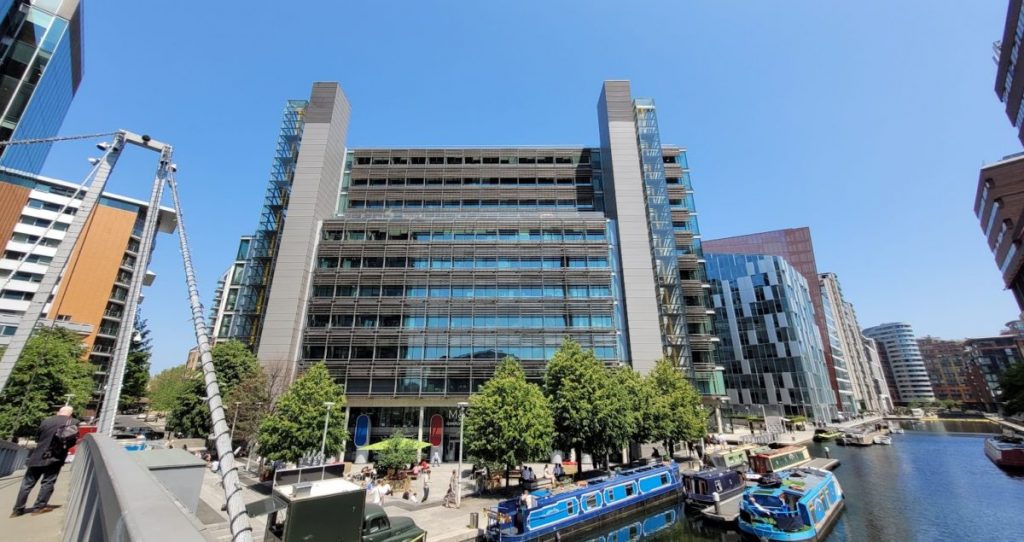Commercial property: Is this the business opportunity for 2024?

An office block in London. — Image by © Tim Sandle
For many in business, investing in property has provided steady growth and investment return. Most people looking to invest in property are immediately drawn to residential projects – those looking to invest are typically homeowners and they tend to stick to what they know.
An alternative is investing in commercial property and this can provide a more robust, long-term and diverse income – if done right.
Digital Journal heard from commercial finance experts at Anglo Scottish to consider the potential for commercial property investments for 2024.
This takes the form of different areas of advice. For example, Stuart Wilkie, Head of Commercial Finance at Anglo Scottish, explains: “It may be financially beneficial to opt for shorter leases and renegotiate terms over time, but if you’re looking for a ‘set it and forget it’ investment, commercial property could represent a more reliable source of long-term income than a residential property.”
Why invest in commercial property?
In many cases, commercial mortgages are taken out by a business who already rent and operate out of an existing premises. Typically, these businesses don’t want to keep renting, and would rather purchase the building as an asset. In many cases, the mortgage payment can be a similar amount – or even cheaper – than their monthly rent.
Wilkie considers that commercial property represents a lucrative investment opportunity for people looking to increase their income or diversify an existing property portfolio. In terms of one advantage, commercial buildings often have multiple tenants, meaning multiple streams of income. Office buildings, for example, could host various different businesses, providing a stable cash flow and increasing your investment’s resilience in the event that one company goes under.

The application process
Wilkie states that for those who have invested in residential property before, they will notice similarities in the process. However, there are some key differences about commercial property which must be understood in greater detail before investing.
The application process for a commercial mortgage tends to be far more complex than with the typical residential mortgage. Whilst standardised commercial mortgages do exist the applicant should be prepared to provide a greater level of detail and documentation when applying for a commercial mortgage. In addition, the applicant is likely to pay a larger initial deposit than with a residential building (20-40 percent).
Lease lengths
Commercial mortgages can offer a more long-term source of income than residential – with less occupant turnover. Wilkie recommends that should you invest in a residential property to rent out, a typical lease length is six months to a year. Residential tenants may rent the same property for a number of years, but the lease is typically renewed every twelve months. This means more administration and less long-term security.
With commercial property lease lengths are typically longer. As per data from 2020, the average length of a retail lease was 5.5 years, with plenty of retailers opting for a longer lease of ten years.
Interest rates
In the UK, an estimated 60 percent of businesses fail in the first three years. Because of this fact, commercial mortgages are deemed to be riskier than a residential mortgage. Wilkie observes that you can expect to pay a higher interest rate on a commercial property than a residential property.
Wilkie does add, however, that the applicant can expect their commercial mortgage to offer better interest rates than a traditional business loan, however, because property must be put up as collateral.

It is possible to get a commercial mortgage with either variable rates or fixed rate, just like a residential mortgage. The majority of deals at present are likely to be done with a fixed rate. Though mortgage rates have fluctuated significantly over the last twelve months – particularly at the start of 2023 – the Bank of England held UK rates at the end of September, causing UK mortgage rates to fall.
Wilkie concludes noting: “Commercial property seems to be an attractive investment for the coming year, now it looks like interest rates are beginning to settle down. A decision like this takes a lot of thought, however, so always make sure that you’re getting good terms and investing in the right property.”
Commercial property: Is this the business opportunity for 2024?
#Commercial #property #business #opportunity





